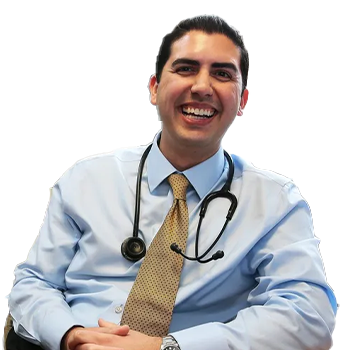Dr. Zak Uddin, Tees Valley Consulting General Practitioner provides his Top 5 tips for looking after your joints when the cold weather strikes.
While your grandmother may have told you that she could predict the weather by the feeling in her bones, the link between poor weather and worsening of arthritis symptoms has not yet been proven. Some suggestions are that changes in air pressure may cause swelling in the joints, or that a drop in temperature makes pain receptors more sensitive. However none of this is of any practical use to the 10 million people in the UK who report joint pains and naturally want to know what to do when the cold weather does strike.
Arthritis simply means joint inflammation and is experienced as varying levels of pain, swelling, redness of the skin over the joint and problems with mobility. Control is as much about prevention as cure, so the tips below should ideally be continued throughout the year.
1. Exercise in a way that you enjoy and will keep up: Make sure you warm up first. Not only will any activity keep your joints supple, it will also strengthen the muscles supporting them, putting less pressure on the joints themselves. Do not pursue high impact activities which cause your joints to ache more. Sports such as swimming and static cycling can help when it’s too cold to go outside.
2. Eat a balanced diet: A healthy diet is high in antioxidants which may not only reduce some of the inflammation, but should help to maintain a sensible weight. Oily fish such as salmon, mackerel and sardines are recommended two to three times a week, to get adequate levels of omega 3- fatty acids. Milk and yoghurt contain calcium to maintain strong bones.
3. Make sure you get the right supplements: Low vitamin D levels are common in the UK at this time of year due to reduced amounts of sunlight, and can cause bone and muscle ache. A regular daily supplement may help in those with deficiency. There is also some evidence for the benefits of glucosamine, chondroitin and extracts of rose-hip in helping maintain joints.
4. Treat pain naturally: The evidence for the long term use of tablet medications including nonsteroidal anti-inflammatory drugs (NSAIDs) and synthetic morphine substitutes (codeine, tramadol) is lacking. Furthermore we are recognising the significant side effects and harm that can come from prolonged use of these medications. Gels applied directly to the skin over the joint are often as effective, with much less risk to your health.
5. Recognise when to get help: If despite all your efforts, you are struggling to deal with your symptoms, please discuss this with your GP. There are numerous things that can be done to help treat joint problems (musculoskeletal medicine); including physiotherapy, joint injections and replacement surgery. It is also worth noting the difference between rheumatologists and orthopaedic surgeons. Rheumatologists are doctors who treat the medical aspects of joint disease and orthopaedic surgeons perform operations to improve your own joints, or where needed, replace these joints.
If you have any questions regarding Dr. Zak's top 5 tips you can tweet him using @AskDoctorZak.
